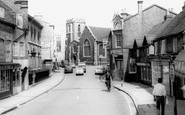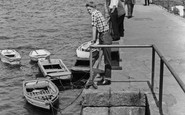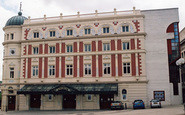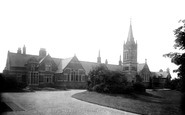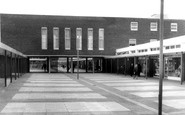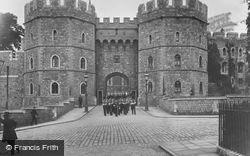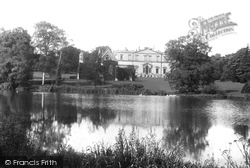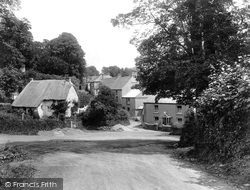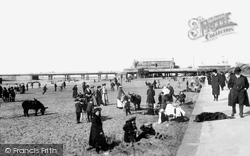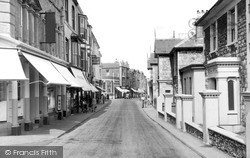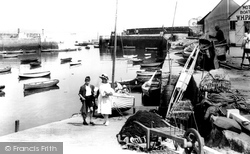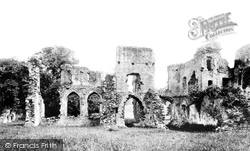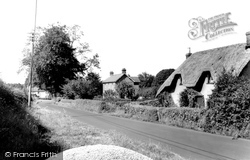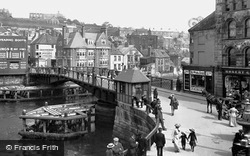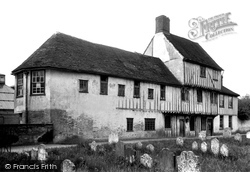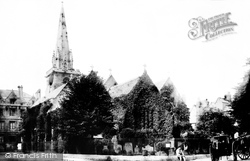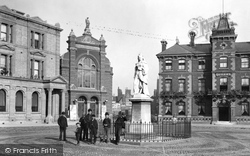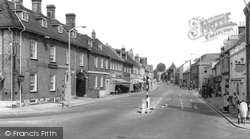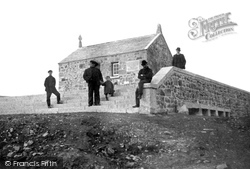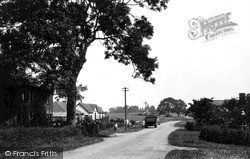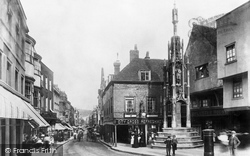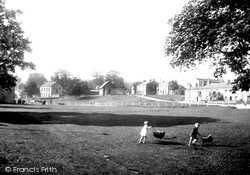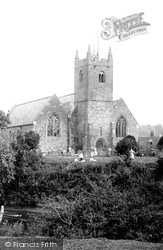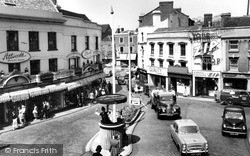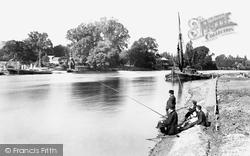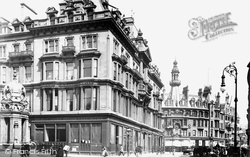Places
18 places found.
Those places high-lighted have photos. All locations may have maps, books and memories.
- Hythe, Kent
- Hythe, Hampshire
- Small Hythe, Kent
- Bablock Hythe, Oxfordshire
- Methwold Hythe, Norfolk
- Hythe, Somerset
- Hythe, Surrey
- Hythe End, Berkshire
- The Hythe, Essex
- Egham Hythe, Surrey
- West Hythe, Kent
- New Hythe, Kent
- Broad Street, Kent (near Hythe)
- Horn Street, Kent (near Hythe)
- Newbarn, Kent (near Hythe)
- Newington, Kent (near Hythe)
- Broad Street, Kent (near Hythe)
- Stone Hill, Kent (near Hythe)
Photos
360 photos found. Showing results 661 to 360.
Maps
101 maps found.
Books
10 books found. Showing results 793 to 10.
Memories
4,406 memories found. Showing results 331 to 340.
The Kosb Barracks
Although born in Scotland, my earliest memories are of Berwick upon Tweed. This was because my father was posted to the Barracks as Pipe Major in the KOSB Depot there. Our married quarters, although in Ravensdowne, ...Read more
A memory of Berwick-upon-Tweed in 1930 by
Swimming Pool
Any of you remember the swimming pool that was built by the kids who where there, Mr Cliff was the instructor while that was being built, I got there just at the very end of it being built. After I was there for awhile I joined Mr ...Read more
A memory of Tiffield in 1952 by
Memories Of St. Margarets Church
Fond memories of St. Margarets Church in Uxbridge, Middx. My home was Harefield Road , Uxbridge. and we were married by the Rev: Bruce Eadie. He asked us to go to Westminster to obtain a special license because ...Read more
A memory of Uxbridge in 1952 by
Fish Strand Quay
Yes, I 'grew up' on Fish Strand and still use it to this day. My father kept various boats off the quay and we always had a dinghy moored there, and we still do, my father is now in his 90s and I have 2 grandaughters. I ...Read more
A memory of Falmouth in 1958 by
Personal Memories Of A Child
I was born in 1942 and by the time I was five years old I has a brother and two sisters. My mum and dad used to send me up to Longriggend for weekends and holidays, probably because my mum was so busy with the ...Read more
A memory of Longriggend in 1940 by
Lower Breinton
Lived there as a young child to an adult. Walking our dog Sam down by the river Breinton springs. Very peaceful place to live. Children near by Stacy, Josh.
A memory of Breinton Common in 2000 by
Lyceum Theatre 1950's
I think my first memory of going to the Lyceum theatre was to see Harry Seacome in the Christmas Pantomime of around 1949, but the highlight for me when I was invited to be a cast member in "Song of Norway" put on by the ...Read more
A memory of Sheffield in 1954 by
Happy Memories Of The Harris Orphanage
I have happy memories of the Harris orphanage. My two brothers and I spent 18 months there. We livd in no 7 and our foster parents were Mr and Mrs Perkins, who was a first rate cook. The govenor was a retired ...Read more
A memory of Preston in 1952 by
Eccentric Artist
I remember cycling to Matching Green from Harlow in the early Seventies, as a 16 year old, exploring with friends one summer evening and coming across a cottage garden filled with strange but delightful 'art works' made out ...Read more
A memory of Matching Green in 1973 by
The Supey
This is how the shopping centre looked when I was growing up in the 1970s. The Hind also had a pub that had no windows and smelt of stale beer. Next door was Mrs Gilchrist's paint shop, she had big ankles and always had ...Read more
A memory of Blackburn by
Captions
4,899 captions found. Showing results 793 to 816.
By the 16th century, the main gateway was in such a poor state of repair that Henry VIII replaced it with the one that bears his name.
By the 16th century, the main gateway was in such a poor state of repair that Henry VIII replaced it with the one that bears his name.
An older building burnt down in 1742; the house we see here was erected soon afterwards by the Napier family.
The bronze statue was fashioned by the sculptor Hamo Thornycroft to mark the 1000th anniversary of Alfred's rule.
This hilltop village overlooks the head of Gillan Creek at the northern edges of the Lizard, close by the Helford River.
The area was then landscaped and turned into a park, which was opened by the Prince of Wales in 1921.
The original Sandown castle was built by Henry VIII but was destroyed by the sea.
By the 1920s the harbour was used almost entirely by small-scale fishermen and pleasure craft.
By the 1920s the harbour was used almost entirely by small-scale fishermen and pleasure craft.
The abbey was founded in 1155 by the Constable of Richmond Castle; the members of the Order were known as the White Canons after the colour of their habits.
Once surrounded by the deer-haunted woods and heaths of Cranborne Chase, Alderholt has kept much of its original character, despite some new houses and a church of little antiquity; the latter is a building
The bridge was a favourite place where people could stop for a chat, or simply stand and watch the world go by. The
Hadleigh's 15th-century Guildhall, with its two overhanging upper storeys, remains as a reminder of the huge wealth generated by the medieval wool trade.
Following the Dissolution of the Monastries, it was acquired by the Crown before becoming part of Pembroke College. Its members worshipped here until the college built its own chapel in 1732.
Behind it is the striking facade of the Queen's Hotel, and on the left, by the entrance to the distinctive Corn Exchange, is a sign advertising excursions to Portsmouth.
Its streets, North, South, East and West, follow the pattern laid down by the Romans.
It was scheduled for demolition in 1904 after use by the War Office, but was preserved after strong local protest.
Close by, almost hidden by the trees, are pleasant cottages.
By the end of the 19th century the building behind the cross had abandoned its role as a general store and had become a refreshment house.
Here carefree youngsters play safely on the grass, oblivious to the events that unfolded by the old stocks near the white fence.
This outstanding Norman church was undermined by the river in the floods of 1770, threatening the many superb memorials to Tenbury worthies of earlier days.
By the 1960s, the increase in motor cars started to cause problems in the narrow streets of Kidderminster, though the dreaded yellow lines had yet to appear.
On the Hampton Wick side, hidden by the trees, are Walnut Tree House and Grove Cottage, with Wick Lodge Boathouse just beyond the motor launches.
George Square in the city centre, on the other hand, was originally no more than a pasture for the cows that provided fresh milk for the city dwellers, but by the 1850s it was almost entirely paved
Places (18)
Photos (360)
Memories (4406)
Books (10)
Maps (101)

